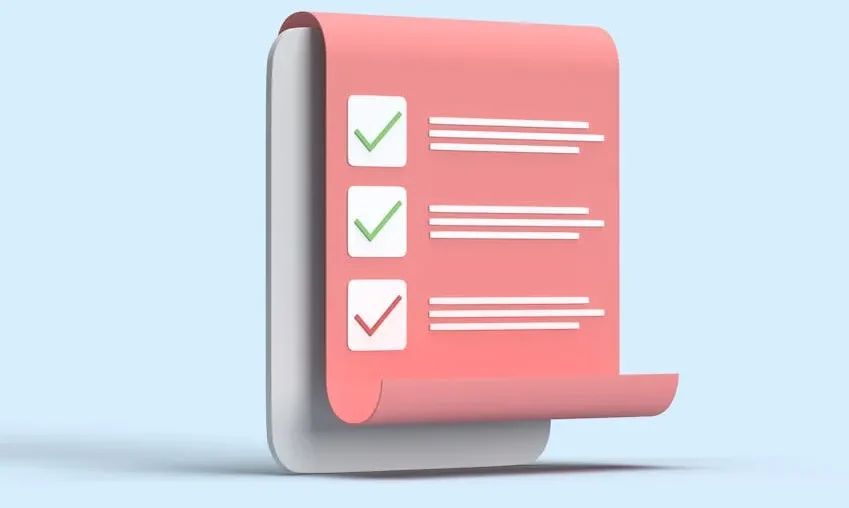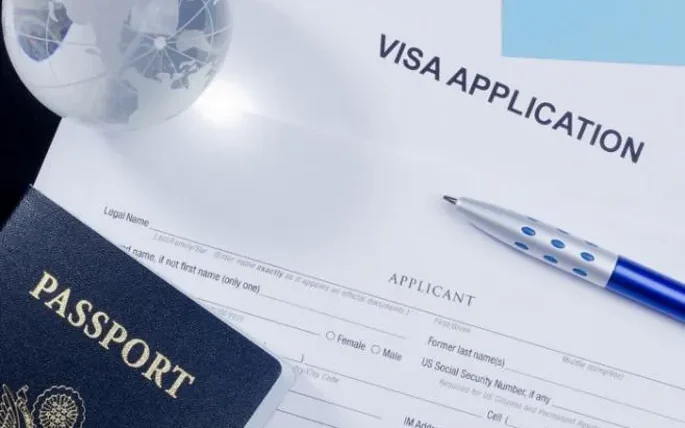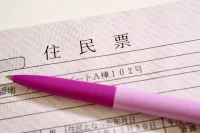【 By purpose (student, work visa, etc.) 】 List of required documents for entry into Japan and how to apply for and obtain them

To foreign nationals who are planning to enter Japan, do you have a clear understanding of the documents and procedures required for entry into Japan? For foreign nationals who plan to enter Japan for various purposes, such as studying, working, or working holiday, it is very important to prepare the necessary documents and obtain a visa to enter Japan.
In this article, we will explain in an easy-to-understand manner the documents and visa types required for each purpose, as well as the specific application procedures. Please refer to this article as it is full of useful information for planning your stay in Japan.
▼Goandup Picks Click here for recommended articles!
- Required before studying abroad! Goandup Nihongo+, an online Japanese language learning service
- This page introduces services for foreigners who wish to study in Japan or improve their Japanese language skills to learn Japanese online.
- Goandup Salon" community for foreigners living in Japan
- We introduce an online community where foreigners living in Japan can exchange information and interact with each other to support their life in Japan.
- Goandup Study" supports foreigners who want to study in Japan.
- This section introduces study abroad support services that provide comprehensive support to foreigners who wish to study in Japan, from preparation for study abroad to living in Japan.
- Where can I buy a prepaid SIM in Japan? Recommended SIM cards for foreigners are also introduced.
- How to purchase a prepaid SIM and suitable SIM cards for foreigners.
- The Complete Guide to Pocket Wi-Fi in Japan for Foreigners!
- We introduce how to select and recommend pocket Wi-Fi products that can be used conveniently in Japan.
- The Complete Guide to Finding a Job in Japan! Finding a job, changing jobs, and part-time work for foreigners
- This site provides foreigners who want to work in Japan with comprehensive information on how to find a job, recommended job sites, and other information necessary to find a job.
【 for students who intend to study abroad 】 List of required documents and procedures for entry into Japan

For foreign nationals who wish to study in Japan, preparing the necessary documents to enter the country is an important first step. Here, we will explain step-by-step the series of procedures necessary for studying in Japan, from obtaining a college student visa to issuance of a residence card, enrollment in the National Health Insurance system, opening a bank account, and signing a cell phone contract.
(1) College student visa
A college student visa is one of the status of residence required to study in Japan. To obtain a college student visa, you must first obtain admission to a Japanese educational institution (university, vocational school, Japanese language school, etc.). Once an admission letter is issued, you can apply for a visa at the nearest Japanese embassy or consulate.
The documents required for application are as follows
- Passport (with at least 6 months remaining validity)
- Visa application form (fill out the prescribed form and attach a photograph)
- Letter of admission or certificate of enrollment
- Documents proving ability to pay expenses (certificate of scholarship receipt, certificate of bank balance, etc.)
- Certificate of residence or ID card from home country
- Medical Certificate (only for applicants from certain countries/regions)
After submitting these documents and passing the examination, a college student visa will be issued. The validity of the visa depends on the length of enrollment at the educational institution.
(2) Resident card
A Residence Card is an identification card issued to foreign nationals staying in Japan for a medium- to long-term period. Foreign students are issued a Residence Card at immigration checkpoints at Narita, Haneda, Chubu, Kansai, New Chitose, Hiroshima, and Fukuoka airports.
The resident card includes your name, date of birth, nationality, status of residence, and period of stay. It must be carried at all times during your stay in Japan and is required for procedures such as change of address.
The validity period of the residence card is the same as the period of stay for a college student visa. Please note that when you extend the period of stay as a college student or change your status of residence, you will also need to renew your residence card.
(3) Health insurance card
International students staying in Japan for more than 3 months are required to enroll in public medical insurance. By enrolling in the National Health Insurance, the co-payment ratio for medical expenses is reduced to 30%.
Enrollment procedures are carried out at the National Health Insurance office of the municipality in charge of National Health Insurance in the area where you live. The required documents are as follows
- passport
- A resident card
- Student ID or certificate of enrollment
- Certificate of residence (with my number)
Once these documents are submitted and premiums are paid, enrollment is complete. The health insurance card issued after enrollment must be presented when visiting a medical institution.
Some universities offer group health insurance for international students. For details, check with the department in charge of international students at your university.
To learn more about Japan's health insurance system, please visit the "What are the types of health insurance in Japan? Explanation of distinctions by occupation, coverage, and enrollment methodsPlease refer to the "See
(4) Bank account
We recommend that you open a Japanese bank account for living in Japan and paying school fees. Many banks offer account opening services for international students.
The documents required to open an account vary slightly from bank to bank, but in general the following are required
- passport
- A resident card
- Student ID or certificate of enrollment
- Personal seal (signature is acceptable)
Immediately after arriving in Japan, it is convenient to withdraw funds transferred overseas before entering the country and to use credit cards. Procedures for opening an account may take some time due to the language barrier. We recommend that you start the procedure as soon as possible to allow plenty of time.
If you would like more information about opening a bank account in Japan, please contact the "Explanation of conditions, required documents, and recommended banks for foreigners to open a bank account.will be helpful.
(5) Cellular phone
Cell phones are indispensable for living and studying in Japan. As a means of communication and a tool for gathering information, a cell phone is an indispensable item.
In Japan, there are two options: major carriers (docomo, au, Softbank) and MVNO companies that offer low-cost SIMs. Carriers offer generous in-store support, but their fees are higher than those of MVNOs. MVNOs, on the other hand, mainly offer online contracts, and their fees are relatively reasonable.
The following documents are required for cell phone contracts
- passport
- A resident card
- Student ID or certificate of enrollment
- Credit card or bank account (required for payment of fees)
When signing a contract at a carrier store, it is recommended that you be accompanied by someone who understands Japanese; in the case of MVNOs, if you choose a company that offers plans for international students, they may be able to provide assistance in English.
Especially recommended is the No. 1 SIM card popular choice among foreigners, "JP SMART SIM". It is specialized for foreigners and can be easily purchased from online. They also provide support in multiple languages, so you can eliminate language concerns.
These are the main documents and procedures required to enter Japan for the purpose of studying abroad. By preparing in advance and planning your activities accordingly, you will be able to start your life as a foreign student smoothly.
For more information on how to choose and sign up for a SIM card in Japan, please visit the "I want to use the cheapest SIM card in Japan! Introducing Recommended SIM & Prepaid SIMCheck out the "What's New?
【 for those who intend to work 】 Documents and visa required to work in Japan

For foreign nationals who intend to work in Japan, it is essential to obtain a visa that suits their purpose. This section focuses on working holiday visas and work visas, explaining the necessary documents and procedures for each application. Please refer to this section if you are aiming for a career in Japan.
(1) Documents required to apply for a working holiday visa
The Working Holiday Visa is for people between the ages of 18 and 30 from countries that have an agreement with Japan. While the purpose of the trip is for tourism, working during the stay is permitted.
The documents required to apply for a working holiday visa are as follows
- Passport (with at least 3 months remaining validity for the period of intended stay plus 3 months)
- Visa application form (fill out the prescribed form and attach a photograph)
- Curriculum vitae (with education and employment history)
- health certificate
- Proof of funds (e.g., proof of bank balance to prove that you have sufficient funds for the duration of your stay)
- Proof of insurance coverage (e.g., overseas travel insurance covering medical expenses)
- A written plan describing your plans during your stay in Japan
- Round-trip airfare or travel expenses with no reimbursement obligation
Submit these documents to the nearest Japanese embassy or consulate. Some countries may require additional documents, so it is important to check in advance.
As a general rule, a working holiday visa is valid for one year. The period of stay cannot be extended, so please plan your activities according to your planned length of stay.
If you want to know the information you need to work in Japan on a working holiday visa, please contact the "A thorough explanation of what it takes to work in Japan on a working holiday visa!will be helpful.
(2) Documents required to apply for a work visa
A working visa is for foreigners who are employed by a Japanese company to work. Various statuses of residence, such as technology, humanities/international services, intra-company transfers, and technical skills, fall under the category of work visas.
To apply for a work visa, the following documents are required
- Passport (with at least 3 months remaining validity for the period of intended stay plus 3 months)
- Visa application form (fill out the prescribed form and attach a photograph)
- Resume (detailing education and employment history)
- Contract of employment or letter of offer
- Materials explaining company profile and business activities
- Documents certifying your background, such as degree certificates and employment history certificates
- Documents proving your address during your stay in Japan (e.g. rental contract)
In addition to these documents, the employer may be required to submit a statement of reasons for the application and a letter of commitment from the employer.
The screening process for work visas focuses on the applicant's educational background, work experience, and Japanese language ability. It is important to demonstrate that the applicant has a high level of expertise and is capable of playing an active role in a Japanese company.
The size and stability of the employer company and its system for accepting foreign workers are also key points in the screening process. If you are looking to change jobs or advance your career, carefully research the company to find a suitable place to work.
The validity period of a work visa is usually determined in the range of one to five years. If you wish to stay longer, you will need to renew your status of residence.
To learn more about the different types of work visas and the documents required for application, please visit the "Types of Work Visas for Foreign Nationals and Required Documents for ApplicationPlease refer to the "See
【 Passport and Residence Card 】 Permission to stay in Japan after entry and how to obtain it

In order to enter and stay in Japan, two important documents are required: a passport and a residence card. Here we will explain in detail the roles of these documents and how to obtain them.
First, your passport is an official document that proves your nationality and identity. It is indispensable for traveling abroad. When entering Japan, your passport must have a remaining validity of at least three months in addition to the period of your intended stay. Obtaining or renewing a passport is done by the government agency of your country. Before traveling to Japan, please check the expiration date of your passport and complete the renewal procedure if necessary.
Next, a resident card is issued to foreigners staying in Japan for a medium- to long-term period and contains your status of residence and period of stay. Residence cards are issued at Narita, Haneda, Chubu, Kansai, New Chitose, Hiroshima, and Fukuoka airports at the time of immigration inspection. If you enter Japan from other airports or ports, you will need to complete the necessary procedures at the municipal office of the city, ward, town or village where you live.
You must carry your residence card at all times during your stay in Japan. It is also required for procedures such as change of address, so keep it in a safe place. The period of validity of your resident card depends on your status of residence. When the expiration date approaches, please do not forget to renew it.
Visa required for entry into Japan and how to apply for and obtain one

In order to enter Japan, it is necessary to obtain a visa for your purpose. Let's take a closer look at the different types of visas and how to apply for them.
First, there are several types of visas, including
- Temporary visitor visa (for stays of 90 days or less, such as sightseeing, business, visiting acquaintances, etc.)
- Long-stay visa (for stays longer than 90 days, such as study abroad, work, family stay, etc.)
A temporary visitor visa is not required for nationals of countries that have reciprocal visa exemption agreements with Japan. The existence of such agreements can be checked on the website of the Ministry of Foreign Affairs of Japan.
On the other hand, long-stay visas are divided into several types depending on the purpose of stay. Typical examples include student visas, work visas, and family residence visas.
As a rule, visa applications are made at the nearest Japanese embassy or consulate. The documents required for application vary depending on the type of visa, but the common requirements are as follows:
- Passport (with at least 3 months remaining validity for the period of intended stay plus 3 months)
- Visa application form (fill out the prescribed form and attach a photograph)
- Documents proving the purpose of stay (e.g., admission letter, employment contract, marriage certificate, etc.)
- Documents proving ability to pay expenses (bank balance certificate, certificate of scholarship receipt, etc.)
- Documents proving identity, such as a certificate of residence or a copy of the family register
Once these documents are prepared and the application fee is paid, the visa examination will begin. If a visa is issued after the examination, it will be affixed to your passport.
Receive notification of visa issuance.
The visa examination process usually takes from one week to one month. After the examination, the applicant will be notified if the visa is to be issued.
With this notice, visit the embassy or consulate again to have the visa affixed to your passport. The visa is valid for a maximum of three months counting from the date of issuance.
Once your visa is issued, it is time to prepare for your departure to Japan. Book your plane ticket and start packing. It is also a good idea to prepare the things you will need for your new life in Japan.
Upon arrival in Japan, you will first go through immigration at the airport. After presenting your passport and visa and obtaining landing permission, you can finally start your life in Japan.
Obtaining a visa is an essential step to enter Japan. It is important to check the documents required for application in advance and proceed with the procedure well in advance. We hope that you will be able to spend fulfilling days in your new environment in Japan.
However, whether or not you need a visa depends on your nationality. For more information, see "Some countries require a visa to enter Japan, while others do not! Explanation of how to apply, etc.Please see the explanation in the following section.
summary
In order to study or work in Japan, it is essential to prepare the necessary documents and procedures to enter the country. International students need to understand the sequence of procedures from obtaining a college student visa, issuance of a residence card, enrollment in health insurance, opening a bank account, and signing a cell phone contract. Those who intend to work should understand the documents and procedures required to apply for a working holiday visa or a work visa.
After entering Japan, your passport and resident card play an important role. Please carry these documents with you at all times and keep them in a safe place.
Preparing for your trip to Japan takes time and effort, but it is important to gather the necessary information in advance and proceed with the necessary procedures in a systematic manner. By deepening your understanding of Japanese culture and customs, as well as by maintaining good communication with local people, you will be able to realize a fulfilling stay in Japan.
We hope this article will help you prepare for your trip to Japan. Please have the courage to take a new step forward and do your best to realize your dreams in Japan.
Your support will help us!
Thank you for visiting Goandup Picks. Our mission is to provide you with more useful information to show the world what Japan has to offer.
Your support will help us to further enhance our activities, so please support us!






